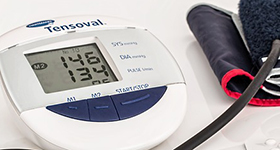Blockchain and the Internet of Medical Things: John Riley on Improved Care, Reduced Risk and Costs

At the first blockchain education and certification session, kicking off a full week of activities at the IoT Evolution Expo in Ft. Lauderdale, Florida, three experts came together to discuss the potential of blockchain to improve healthcare delivery.
Joining Michael Hathaway, founder and CEO of Ironbridge Enterprise (which launched at the event), and Akshay Sharma, top industry analyst with neXtCurve research, John Riley, founder and CEO of CNC Blockchain shared use cases associated with the Internet of Medical Things (IoMT) and how a distributed, immutable ledger makes innovation possible – at scale.
“In the healthcare industry, the sharing of data has always been challenging, which has driven HIPAA regulations for all the right reasons but has slowed down innovation because of the complex nature of exchanging that data,” Riley said.
“What we’re finding in working with many different companies and their suppliers in the healthcare space is that they don’t fully understand how blockchain can co-exist with their existing systems, enhancing those systems and eventually replacing them,” Riley continued. “When they start to see how blockchain simply creates a registry of transactions where data is exchanged and can much more easily be audited – over extremely secure private systems – the light goes on.”
Riley has been working in blockchain longer than most and was attracted to the technology after decades of serving as an enterprise systems architect and consultant for Oracle and other tech giants.
“Gone are the days when big companies can force long-term contracts on their customers, who have been trained to expect a platform to be built for ten or twenty years of service,” Riley said. “Today, with more open source, greater collaboration around software, cloud and networking, and with proven successes through the use of Linux and other more flexible and scalable options, this generation of CIOs and CSOs are increasingly choosing disruptive approaches.”
Riley believes blockchain has no value unless it is working in concert with other technologies, whether ERP and supply chain, or IoT and Industrial IoT, including the IoMT.
“Blockchain – private, public, or a combination – is a means to an end, an enhancement technology that reduces the need for a lot of third-party software and services,” Riley said. “Our clients really get it when they see that they may only need half of the people they have in accounting or compliance when blockchain makes more automation and transparency possible. An audit can be done daily now, and closing the books can happen on demand, not just at the end of every month and quarter, which has been a heavy lift given so much fragmentation across accounting and finance systems.”
In healthcare, Riley is enthusiastic about the ability for blockchain-based systems to support the inevitable growth of medical devices, worn and embedded.
“There are so many great inventions coming up, and even as the FDA itself continues to transform to support and certify a new pacemaker, for example, which can send signals to a cardiologist, the issues of privacy and ensuring compliance across the physical and digital supply chains has to be worked out,” Riley said.
“Building connected health solutions goes hand-in-hand with blockchain’s advantages – this is a perfect example of how blockchain isn’t just its own thing – it is power tool for technologies that rely on an exchange of data securely and compliantly, between the providers, insurers, and patients.”
Interacting with Hathaway and Sharma, Riley covered the broad topic of how blockchain can either improve the anonymity factor or leave a record the can be linked and break HIPPA compliance rules.
“Naturally, it depends on the implementation,” Riley said. “This is why I’m so behind conferences like these, because we are together learning about the best practices needed to take advantage of blockchain for patient care, in pharma trials, and more, and working through the critical issues in real time. There is no one company with all the answers, nor is there one platform for all. 2019 is going to be another breakout year for blockchain and IoT, and I believe the year where the intersection of physical devices and digital systems will come together in ways that can enhance health and wellness and people’s lives for decades to come.
https://www.cncblockchainadvisory.io/
John Riley III is the CEO and Founder of C-N-C Blockchain Advisory company. He has over 17 years’ experience in the software applications space working for companies like Oracle and SAP. He has primarily worked in the consulting services sector assisting organizations with their software implementations, business process changes, digital transformation initiatives, and end-user adoption training. He has spoken at various Blockchain conferences, events, and was recognized in Bitcoin Magazine in 2017 for his work with Blockchain Meet-Up groups. He’s also a U.S. Marine war veteran.
Arti Loftus is an experienced Information Technology specialist with a demonstrated history of working in the research, writing, and editing industry with many published articles under her belt.
Edited by Ken Briodagh

